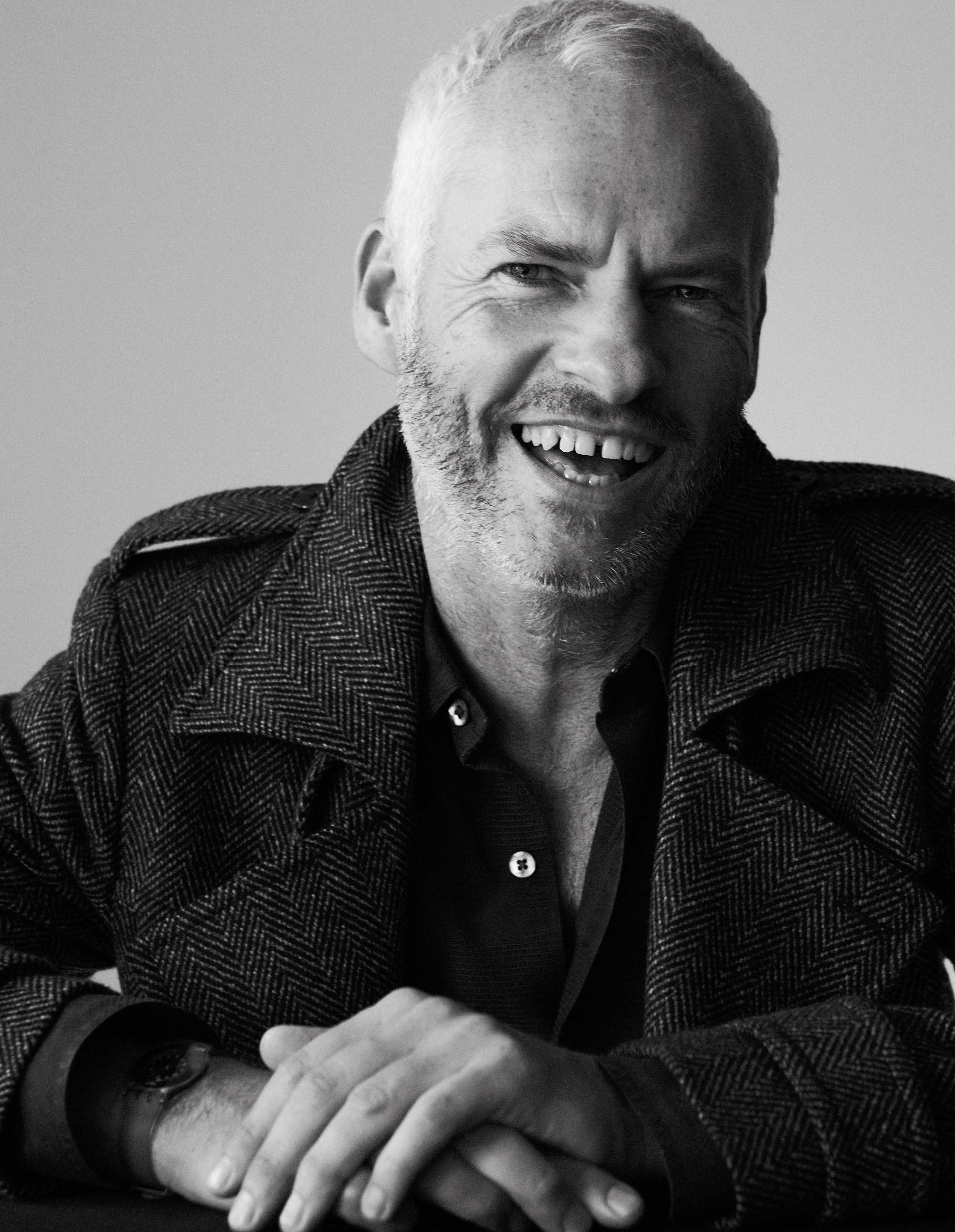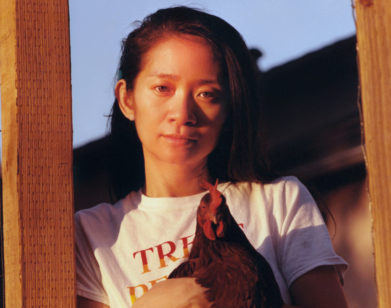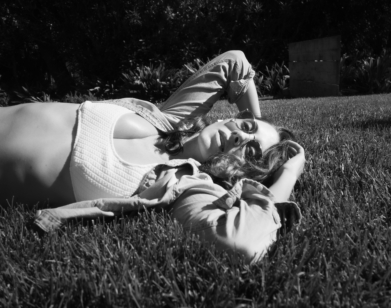Martin McDonagh talks magic mushrooms with Amy Schumer
Anyone who doubts that the pen is mightier than the sword has not had the pleasure of being introduced to Martin McDonagh’s work. The 47-year-old Anglo-Irish playwright and filmmaker practically weaponizes the dialogue he bequeaths to his characters—and most often they use it to attack each other. On stage and screen, McDonagh’s warfare plays out primarily in the form of madcap, pitch-black comedy. His savage and witty 2008 film In Bruges, starring Colin Farrell and Brendan Gleeson, about two hit men on the lam, illustrates why he’s earned a reputation as one of today’s most darkly original voices.
Born and raised in London to working-class Irish parents, McDonagh dropped out of school at 16 and pinballed between odd jobs until he was 24. His first serious effort was his 1996 play, The Beauty Queen of Leenane, about a spinster feuding with her elderly mother, which opened in Galway, Ireland. He’s gone on to write seven other critically acclaimed plays, many of which take place in Ireland and draw heavily from the local vernacular and temperament. In 2004, he began writing and directing films with his signature mix of criminality and comedy. (His first, the short film Six Shooter, won an Academy Award.)
McDonagh’s latest—and his second feature to be set in America—is next month’s Three Billboards Outside Ebbing, Missouri. Frances McDormand plays a mother whose daughter has been raped and murdered; when several months go by without an arrest, she sets up a trio of billboards aimed at the town’s police chief (Woody Harrelson), effectively declaring war against the local law enforcement. While traveling around waiting for the release of what might be his cinematic masterpiece, McDonagh called up his biggest fan, the comedian Amy Schumer, for a conversation about the writing—and drinking—life.
AMY SCHUMER: Martin, I don’t know if you know this, but you are my favorite playwright.
MARTIN McDONAGH: Thank you, Amy. I’d read that somewhere. You are my favorite comedian and actress.
SCHUMER: That’s not true. I don’t believe that for even one second.
McDONAGH: Okay, comedian then. But there’s still time.
SCHUMER: True. We’re so young. I loved Three Billboards so much. It’s one of the most special movies I’ve seen in a really long time. Is that enough dick-sucking? Should I start asking questions?
McDONAGH: I can always use a little more, but go on.
SCHUMER: What are your favorite drugs?
McDONAGH: [laughs] I guess magic mushrooms, which I might be doing tonight here in Bordeaux.
SCHUMER: Fun. Have you drank any Bordeaux?
McDONAGH: No, I’m not really a red guy.
SCHUMER: Wow, you don’t sell out on your alcohol. We’re both chardonnay people. But I’ll sell out if I’m in the region. What’s your favorite drink right now?
McDONAGH: These days I’ve gotten back into whiskey and ginger.
SCHUMER: What kind of whiskey?
McDONAGH: A nice Irish one like Jameson or something like that.
SCHUMER: Very nice. Goldie Hawn makes a really good chardonnay—she and Kurt Russell have a vineyard. I didn’t know this until I worked with her. I also like scotch. But I’m never opposed to Jameson.
McDONAGH: It would be cool to have a vineyard, but we would just drink everything.
SCHUMER: People would come to our vineyard and we’d be like, “Well, we don’t have any wine for you today because Martin and I drank it all.” How do you handle drinking while you are writing?
McDONAGH: I never, ever drink while writing. Never have from the start, and I’m happy that I never have to. A lot of my stuff is plot-driven and mathematical, and I think you need a clean and sober mind to pin down the logistics of that. I also think when you’re drunk and you’re writing, everything seems good until the next day. You’re a bit more honest when sober.
SCHUMER: Do you have a celebratory tradition for when you finish a script?
McDONAGH: Not really.
SCHUMER: You’ve gotta get something. What I do is I go out and I fuck a stranger. And it feels amazing.
McDONAGH: And you’ve written a lot of stuff. Jesus.
SCHUMER: After every sketch I wrote for my show, I would run out, go to a bar, and fuck a stranger.
McDONAGH: [laughs] You’re only writing so you can fuck people.
SCHUMER: That’s correct. People will want to know what you’re doing in Bordeaux.
McDONAGH: I went to Carcassonne—a little medieval kind of town—to see the Pixies play last night, because they’re one of my favorite bands. Then I’m going to go to the coast and see what’s going on booze-wise down there.
SCHUMER: Isn’t it great when you have the capacity to go on a bender but in really elegant locations? If you’re blacking out while looking at a castle, it’s like you can’t feel guilty about it. I’m wondering, what is the hardest that you’ve ever laughed with Sam Rockwell [who appears in Three Billboards Outside Ebbing, Missouri, as well as McDonagh’s 2012 film Seven Psychopaths]? Does a moment over the years stick out in your head?
McDONAGH: Sam and I always drink a lot of tequila when we’re together in the East Village. This is going to sound very name drop-y, but we went to Christopher Walken’s place and stayed overnight, and we had a lot of wine and cocktails there, and I can’t remember what we laughed at, but we were laughing the whole night.
SCHUMER: Sam mentioned this, too. I was asking him about you, and he also mentioned the hardest that he’s laughed is at Christopher Walken’s. Can you think of the hardest you’ve laughed with Woody Harrelson?
McDONAGH: That probably involved a lot of marijuana. I first met him in Dublin 15 years ago, and this is the opposite of laughter, but I just had to lie down for 24 hours. I couldn’t get vertical. He’s a good chess player, too. We were playing chess stoned, and he whupped my ass.
SCHUMER: Frances McDormand is amazing in this movie. What I liked about her role is that it could have easily been written the exact same way for a man.
McDONAGH: We need more female characters like hers—not just strong or smart or whatever, but women you’d want to be. I want to be Frances in this movie.
SCHUMER: She’s reached that point of not taking shit from anyone, but she can still be a very loving, passionate person while doing that. I thought that was captured so perfectly. I’m curious if Frances read the script beforehand, and if she was in as soon as she read it.
McDONAGH: We met years ago after one of the plays in New York, but only for a five-minute conversation. When I started writing this script, I had her in mind. To be honest, if she hadn’t done it, I wouldn’t have known where to go next because no one has what she has.
SCHUMER: Right. You can’t go, “Get me a Frances McDormand type.” Do you ever develop a script with actors? Or do you want them to say the lines pretty much as they are written?
McDONAGH: One hundred percent as written. I’m very snooty about that. I’m not in the improv business. I’m a writer and you sign up to do my script; I haven’t signed up to do yours.
SCHUMER: I think you’ve earned the right to have people say the words that you’ve written. Where’s your favorite place to write?
McDONAGH: I can go anywhere. In fact, for Three Billboards, I was just getting on trains around America. I wrote everywhere from New York to New Mexico. I always write with pencil and paper.
SCHUMER: What paper?
McDONAGH: Just a common spiral notepad kind of thing.
SCHUMER: Has the writing process changed for you at all over the years?
McDONAGH: Not really. I don’t write all the time. But if I’m writing something, I’ll just bang into it every day until it’s finished. I write pretty quickly. So this probably only took five or six weeks. Most of the plays are a lot shorter than that, between two and four weeks. I kind of get it out and then I don’t write for the rest of the year.
SCHUMER: What has been attracting or inspiring you the last couple of years?
McDONAGH: Writing-wise … nothing.
SCHUMER: Great, that’s perfect.
McDONAGH: [laughs] No, you know what? I really want to get Colin Farrell and Brendan Gleeson back together, so I’ve been working on an Irish script to do that. It’s kind of finished, but it still needs a bit of work. Because I don’t want to fuck that up, you know?
SCHUMER: What lessons did you learn from In Bruges that changed the way you approach film now?
McDONAGH: I learned who you have to stand up to in order to make sure that your vision is being executed.
SCHUMER: The craft service people, right?
McDONAGH: Always. [laughs]
SCHUMER: “I said almond milk!”
McDONAGH: Exactly. Part of that was learning not just who to stand up to, but which jobs are ones that you really have to pay attention to. Like props. I never really thought about props before the first movie.
SCHUMER: Did you write that Frances would be wearing a jumpsuit, or was that the costume department?
McDONAGH: No, that was actually Frances. Basically, from the first moment we see her, she’s going to war. So she’s in uniform.
SCHUMER: Do you listen to music when you write?
McDONAGH: No, I can’t have anything playing. When I’m typing it up afterward, I can have classical music on, but nothing with words.
SCHUMER: You love animals. Is that fair to say?
McDONAGH: I do. Especially rabbits. I’ve got a fondness for rabbits.
SCHUMER: Why? Is that from when you were a kid?
McDONAGH: Yeah. I guess I always wanted one and never had one. I mean, I’ve got the money to have one now.
SCHUMER: You could totally afford a rabbit now.
McDONAGH: I could even get two. I’m just an animal kind of guy. We’ve also got a nice tortoise in this film.
SCHUMER: And a deer. Lets talk about Hangmen, your play. I got to read it, and I’m very excited to see it. Where are you right now in that process?
McDONAGH: We’ve cast it, and it’s going to be rehearsing in December at the Atlantic Theater Company in New York. Have you been to that theater?
SCHUMER: Yes. I’m very, very cultured. Did you think about maybe making it Hangwomen, and then I could be in it?
McDONAGH: Hello? Um, there seems to be some problem on the line.
SCHUMER: [laughs] This is the most annoying question: Why won’t you adapt your plays into movies?
McDONAGH: I think unless you write for the art form and have it be its own endgame, then you’ll never get it perfect.
SCHUMER: Do you hate money?
McDONAGH: It would feel like selling out, to do that for money.
SCHUMER: Why do all Irish writers leave Ireland?
McDONAGH: Well, in the past they had to leave because either there was nothing going on, or because—for people like James Joyce or Oscar Wilde—there was so much censorship from the church and state that they couldn’t get anything done. I was born in London anyway, so it’s not as big an issue for me, but even when I was trying to send plays to Ireland, lots of places turned them down, from Beauty Queen to The Cripple of Inishmaan. There’s something both snobby and insecure about the Dublin press in particular, that you have to either avoid or go to war with. And I always waver between the two.
SCHUMER: Would you want to have a child with me?
McDONAGH: Hello? We’re breaking up again.
AMY SCHUMER IS A COMEDIAN, WRITER, ACTRESS, PRODUCER, AND STAR OF THE EMMY AWARD–WINNING SERIES INSIDE AMY SCHUMER. THREE BILLBOARDS OUTSIDE EBBING, MISSOURI IS IN THEATERS NOVEMBER 10, 2017.






